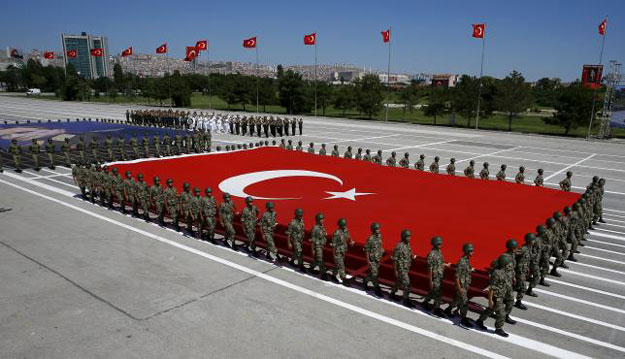
Driven by a 5.6 per cent rise in consumer spending from the same period the year earlier, the reading for the second quarter came in well above the market consensus of just under three per cent.
The auto sector and exports were weak however, largely due to widescale strikes at major car plants.
First half growth was 3.1 per cent over the same period in 2014.
The economy had expanded 2.5 per cent in the first quarter, and economists had been predicting that Turkey was heading for a period of mediocre growth.
The country is also beset by persistently high inflation of over seven per cent and the declining lira, which has lost over 30 per cent in value against the US dollar since the start of the year.
"The sharp pick-up in Turkish GDP growth in Q2 provides some rare good news for the economy," said William Jackson, senior emerging markets economist at Capital Economics in London.
"However, we think this is likely to be temporary and higher inflation and tighter monetary policy will cause growth to weaken again over the coming quarters."
Growth was 2.9 per cent in 2014, with several economists predicting that the high growth levels seen in the first years under prime minister turned president Recep Tayyip Erdogan were now at an end.
This year non-economic factors are also causing a shadow, with the country facing snap elections on November 1 and the government waging a relentless campaign against Kurdish rebels.
"Taking the downside risks stemming from political uncertainty and security concerns into consideration, we think economic activity is likely to remain at a much more modest trend in the forthcoming period," said Gokce Celik, economist at Finansbank in Istanbul.








1736939933-0/sidra--(8)1736939933-0-270x192.webp)

1736930217-0/sidra--(6)1736930217-0-270x192.webp)
1732012115-0/Untitled-design-(14)1732012115-0-270x192.webp)
1736844405-0/Express-Tribune-(2)1736844405-0-270x192.webp)










COMMENTS
Comments are moderated and generally will be posted if they are on-topic and not abusive.
For more information, please see our Comments FAQ